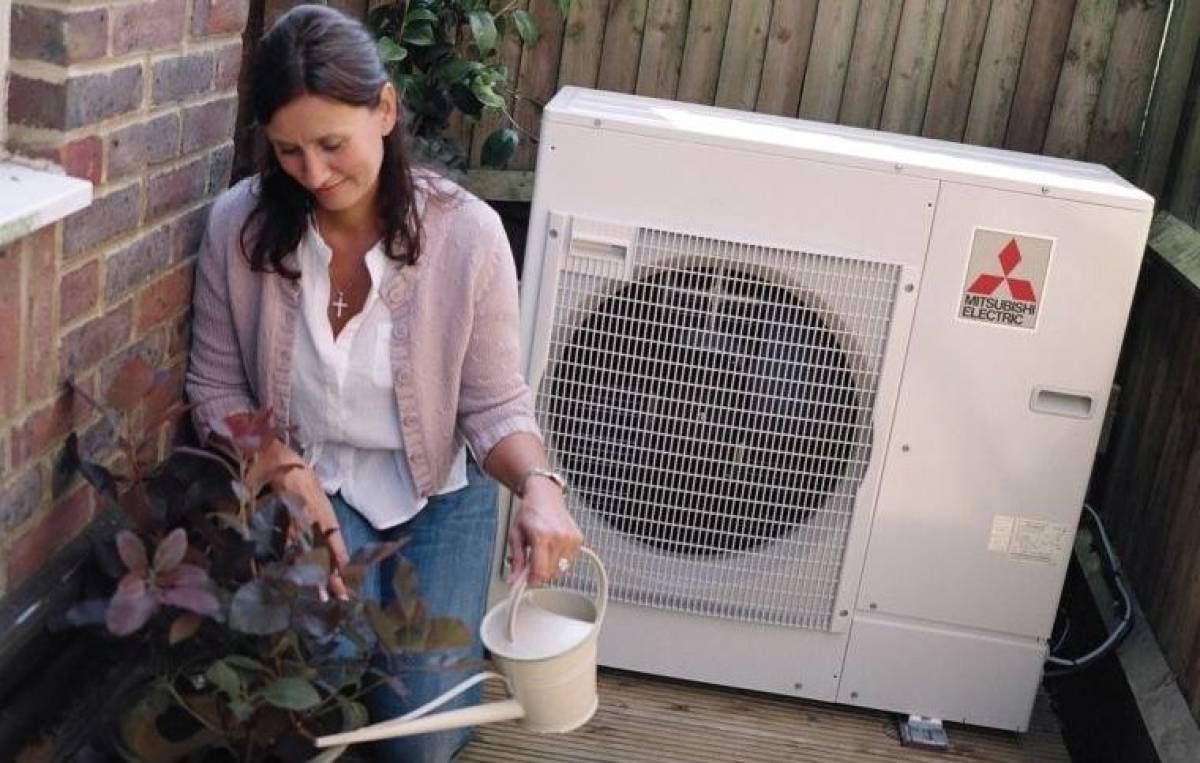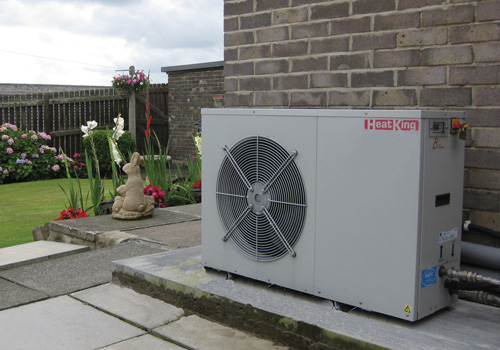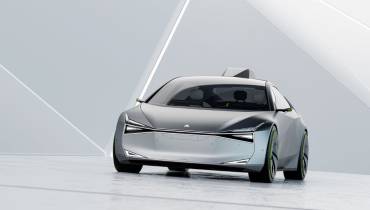Why Hybrid Heat Pumps Are Seeing a Spike in Sales - What You Should Know

Mitsubishi Ecodan
Hybrid heat pumps are an ingenious and cost-effective way of heating homes. They consist of a standard boiler and a heat pump, which is an alternative to traditional fossil fuel-based boilers.
While traditional boilers are generally effective during cold months, installing a hybrid heating system can be a better option to make your heating system more cost and energy efficient, while also contributing to a reduction in global total emissions.
More people are buying hybrid heat pumps because they offer a way for heating homes without fossil fuels. The heat pumps are seen as a tool in the fight against climate change, aligning with the global paradigm shift toward efficient and cleaner technologies.
By 2030, the US residential heat pump market is expected to hit $22.2 billion, with more than three million heat pumps reportedly sold each year. In Europe, heat pump sales grew by +7.4% in 2020, with approximately 1.62 million units sold, a new sales record.
Hybrid heat pumps use a combination of renewable energy and fossil fuels to heat your property, which not only contributes to protecting the environment as they are more eco-friendly, but also significantly reducing your monthly bills and CO2 emissions.
In fact, replacing all of those inefficient, fossil-fuel systems with heat pumps could result in a reduction of 141 million metric tons of emissions per year.
How hybrid heat pumps work
Hybrid heat pumps cleverly use electric heat pumps that move the ambient temperature of air, ground, or water outside into your house to allow renewable heating.
The heat taken from the outdoors by your heat pump is distributed and used indoors for heating and hot water. This is a reversal of the technique usually seen in fridge freezers.
Another component of hybrid heat pumps is the boiler. The hybrid heat pump system uses both the heat pump and boiler, switching between the two depending on which is more efficient.
There is a fluid in the heat pumps that absorbs heat from the outside air. The fluid gets condensed into gas and then these gas vapors heat the house. When the air outside is too cold, the system switches to the boiler, and its gas is used to warm up the house.

Advantages of hybrid heat pumps
Hybrid heat pumps offer a more cost-effective way of heating your house as compared to the traditional boiler system, reducing energy bills.
Besides that, there are many other benefits it brings:
- It lowers CO2 emissions, improves air quality, and contributes to protecting the environment.
- Some models can be used with solar panels to create an even more eco-friendly heating system.
- You can get quarterly payments when you use hybrid heat pumps through government schemes offering renewable heating incentives. Visit website resources like Utility Bidder to learn more and find the offers.
Disadvantages of hybrid heat pumps
Like most things in life, there are some disadvantages of hybrid heat pumps you should also keep in mind too.
- Some properties will not have enough space to install the heat pumps.
- Hybrid heat pumps work efficiently and keep the indoors warm, only if your house has good insulation.
- Larger central heating pipes are needed in homes to increase the heat flow rate.
- Larger radiators may also be required to supplement the loss of heat during colder months.
So, are hybrid heat pumps right for you?
To determine if hybrid heat pumps are right for you, there are certain things you need to consider when you are thinking about installing the heat pumps:
- Do you have space outside that will easily fit the hybrid heat pump system? Generally, the minimum space required is approximately 1100 mm in width, 450mm in depth, and 1565 mm in height, plus the area around it.
- Is your current heating system outdated?
- Is your home adequately insulated to allow efficient working of the heat pumps, or will you have to get it insulated?
- Does your house have large central heating pipes, or will you need to install them?
The answer to these questions will help you determine whether a hybrid heat pump is a right solution for you when you want to efficiently heat your house and reduce your carbon footprints.
Hybrid heat pumps offer a more renewable and sustainable way of heating your house during the winter season than the traditional boiler system.
Despite the high upfront cost, hybrid heat pumps are better for reducing your monthly energy bills and CO2 emissions, and thus create a cleaner and greener environment.
So, if your system is outdated and you think you are the right candidate for heat pumps, you should consider switching to the hybrid heat pump.




















